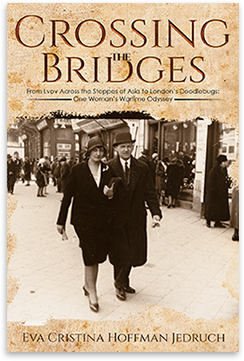
THOUGHT FOR THE DAY: IN PRAISE OF FOREIGN LANGUAGES
Thought for the Day: In Praise of Foreign Languages
In today’s shrunken world, familiarity with foreign languages can be a useful
skill.
I speak five of them, with varying degree of proficiency, from writing a book
to ordering a coffee, all but one acquired through vagaries of life beyond my
control.
– Polish, first, is my mother tongue; I was born with it. Although I left
Poland at the age of seven, I speak it flawlessly, without a hint of foreign
accent. A single giveaway is occasional use of an antiquated expression.
– Next came English at the age of eight, when I found
myself in London, living with my mother, who placed me in school sans the
slightest knowledge of the language. At the time Mother was a lieutenant
colonel in the army, which would explain it. English was drummed into me by
nuns with daily spelling and summarizing of texts into ‘précis’. It’s quite
time-consuming trying to achieve proper reduction of text, as recognized by the
French mathematician Blaise Pascal, when he wrote to a friend: ‘I have only
made this letter longer because I have not had the time to make it shorter.’ Shakespeare
had his own take on this: ‘Brevity, he said, is the soul of wit’.
– After English it was Spanish – at the ripe age of ten
– in the beautiful city of Buenos Aires known as the Paris of the South. Not
pure Spanish with its “thetas” and “eshhs”, rather the Spanish of erstwhile
American colonies, liberally sprinkled with “italianisms”, due to a heavy
post-war immigration from Italy.
At that point I could juggle three languages with ease. Kids’ brains are like
little sponges, absorbing without concern for rules of grammar or other
linguistic niceties.
– As I became a teenager French followed, for no other reason than that
according to old European traditions, a proper young lady ought to speak the
courtly language of diplomacy, even though by then it had been displaced in
that role by English, and even though the family were cash-strapped political
expats.
– Fifth, German, uphill battle, not an unmitigated success. What can you expect
of a language, where nouns come at the beginning of the sentence, verbs at the
very end, and five lines of text in between. When I went to work for a German
corporation, I overcame these hurdles, on the kindly advice of my boss: “You
vill learn it, and you vill like it”.
Is such an agglomeration of tongues useful?
Depends on the languages. For me it was godsent. Three times during my
professional life excellent jobs came my way only thanks to the knowledge of a
particular language. Since I retired, they still open a window to other
cultures, allowing vistas of foreign places where one moves freely and orders
dinner without excessive use of sign language.
Now it’s time for Italian:
– Buongiorno, Signor Dante, here I come.
Post Views : 1619